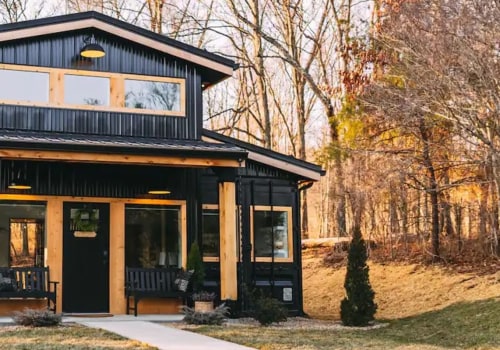Log homes carry a unique charm and aesthetic that often appeals to those seeking a connection with nature and a more traditional, rustic lifestyle. This distinct appeal can translate into higher value, both in terms of monetary worth and personal satisfaction. The value of a log home is influenced by several factors, including its location, craftsmanship, materials, and how well it has been maintained. In areas where log homes are sought after, or where there is a strong market for unique, custom-built homes, they can indeed be more valuable than standard construction homes. The craftsmanship involved in constructing a log home is extensive, as it requires a level of skill and attention to detail that goes beyond that of typical frame houses. This craftsmanship, combined with the use of natural materials, often results in a home that is not only aesthetically pleasing but also durable and long-lasting, provided it is properly maintained.
Moreover, log homes are often perceived as being more sustainable and eco-friendly, which is increasingly important to today's homebuyers. The thermal mass of logs can provide natural insulation, keeping the home warmer in the winter and cooler in the summer, which can lead to lower energy costs. However, this energy efficiency can vary greatly depending on the home's design, the type of logs used, and the construction techniques. Proper sealing and maintenance are crucial to maximizing the energy efficiency and longevity of a log home, factors that can significantly impact its value.
Additionally, the integration of modern amenities and technologies, such as network cabling, into log homes can enhance their functionality and appeal, blending the rustic charm of log construction with the conveniences of modern living. This can be particularly appealing to buyers who desire a home that offers the best of both worlds. Having a home that is both aesthetically unique and fully equipped for today's technological needs can make a log home stand out in the real estate market.
However, it's also important to consider the potential challenges associated with log homes, such as the need for regular maintenance to protect against weather, insects, and decay, which can be more demanding than in traditional homes. Additionally, financing and insuring a log home can sometimes be more complicated, as not all lenders or insurance companies are familiar with the specifics of log home construction.
In conclusion, while log homes can be more valuable to the right buyer, their value is contingent upon a variety of factors, including location, construction quality, maintenance, energy efficiency, and the integration of modern features like network cabling. For those who value the unique charm, warmth, and character of a log home, and who are willing to invest in its upkeep, a log home can indeed be a valuable and rewarding investment. However, potential buyers should be aware of the additional responsibilities and considerations that come with owning such a home to ensure it remains a valuable asset.



